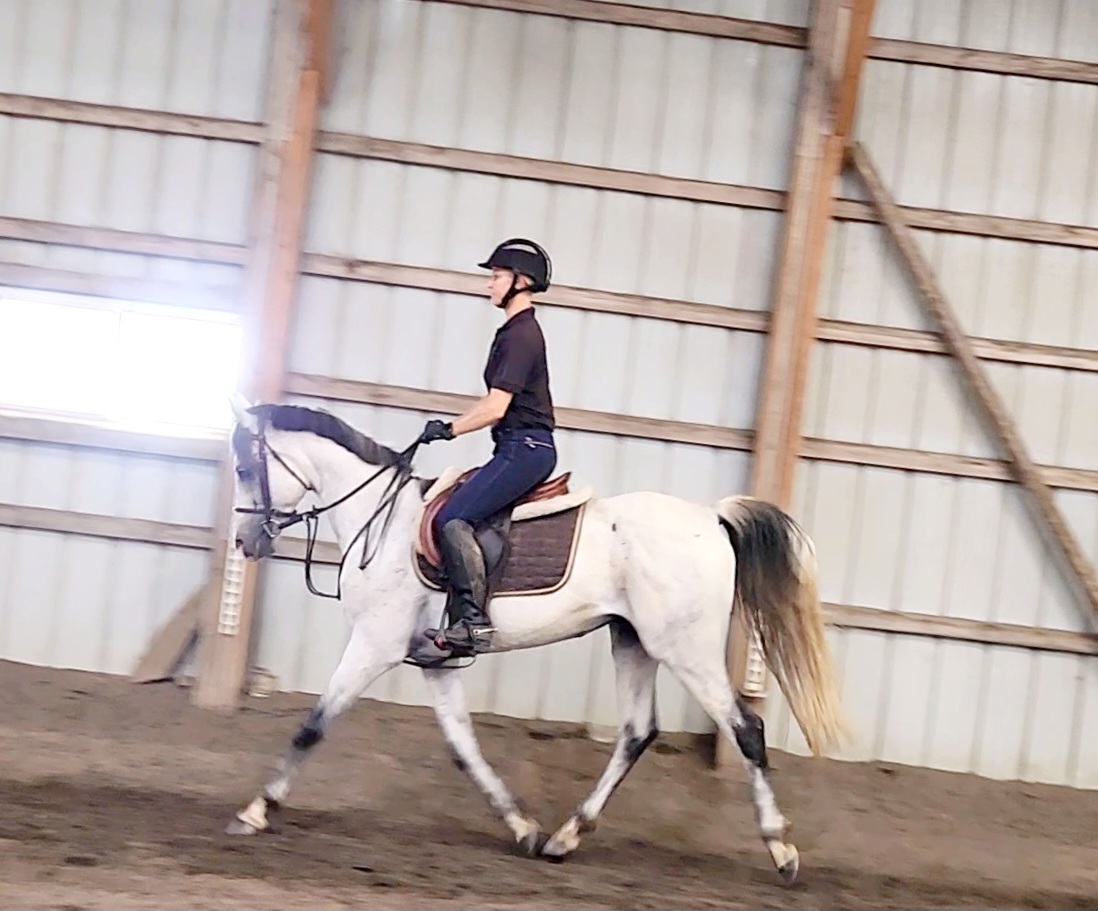
Grass is the best natural source of Vitamin E. Photo courtesy of Banixx.
How much do you know about Vitamin E and your horse’s requirements for it? Vitamin E is the compilation of eight naturally occurring compounds that have antioxidant properties. Vitamin E is a fat-soluble nutrient, meaning it’s stored in the body’s fatty tissues and the liver. Your horse can store Vitamin E when it is provided in abundance and utilize it later when less is provided.
Dr. Green (also know as grass) is the best natural source of Vitamin E. Once hay/grass is cut, the amount of Vitamin E drops off and will continue to drop over time. So, the older the hay, the less Vitamin E.
What does Vitamin E do?
It’s an antioxidant. A simple explanation of antioxidants is that they bind with free radicals to diffuse them and make them less damaging to the cells. Free radicals are unstable molecules and are a byproduct of the body’s utilization of fuel such as protein, carbohydrates and fats.
For nerves, muscles, reproductive system, and internal systems, Vitamin E is vital to the repair and health of these systems. Horses under stress, such as pregnant mares, nursing mares, young horses, performance horses, and older horses are likely to need more. It’s an essential part of the diet for horses with allergies, those prone to tying up, those with metabolic syndrome, or those recovering from an illness.
How does my horse get Vitamin E?
Fresh pasture is the best supplier. The way we keep our horses now, with less or no pasture, means that horses may not be able get and store up enough Vitamin E. A diet heavy in hay, not grass, results in a forage where the Vitamin E has dissipated in the drying process and is much less available.
Supplements to provide additional Vitamin E can be from synthetic or natural sources. But it’s important to know that the natural Vitamin E is stored in the horse’s system for about twice as long as synthetically sourced Vitamin E.
What happens if he does not get a sufficient amount of Vitamin E?
Vitamin E deficiency can result in cell damage. This damage can lead to sore muscles, injury, slow recovery from exercise/work (otherwise known as oxidative stress). Oxidative stress is more likely to occur in nerves, muscles and the immune system, as they consume energy faster than other systems in the horse.
How do I know if my horse is getting enough Vitamin E?
There are no recent studies on this; however, in 2007 the National Research Council (NCR) recommended about 500 IU (international units) daily for a 1,100-pound horse in light work, and more for horses in heavier work. For those horses that need more Vitamin E, the recommendation is about 5,000 IU per day.
There is scant data regarding overdosing a horse on Vitamin E; however, in other animals (including humans) excessive Vitamin E can be toxic since it is stored in the fat and it’s not a water-soluble vitamin so the old cliché. “Everything in moderation” is best taken to heart here.
Brought to you by Banixx – the #1 trusted solution for equine and pet owners!




















